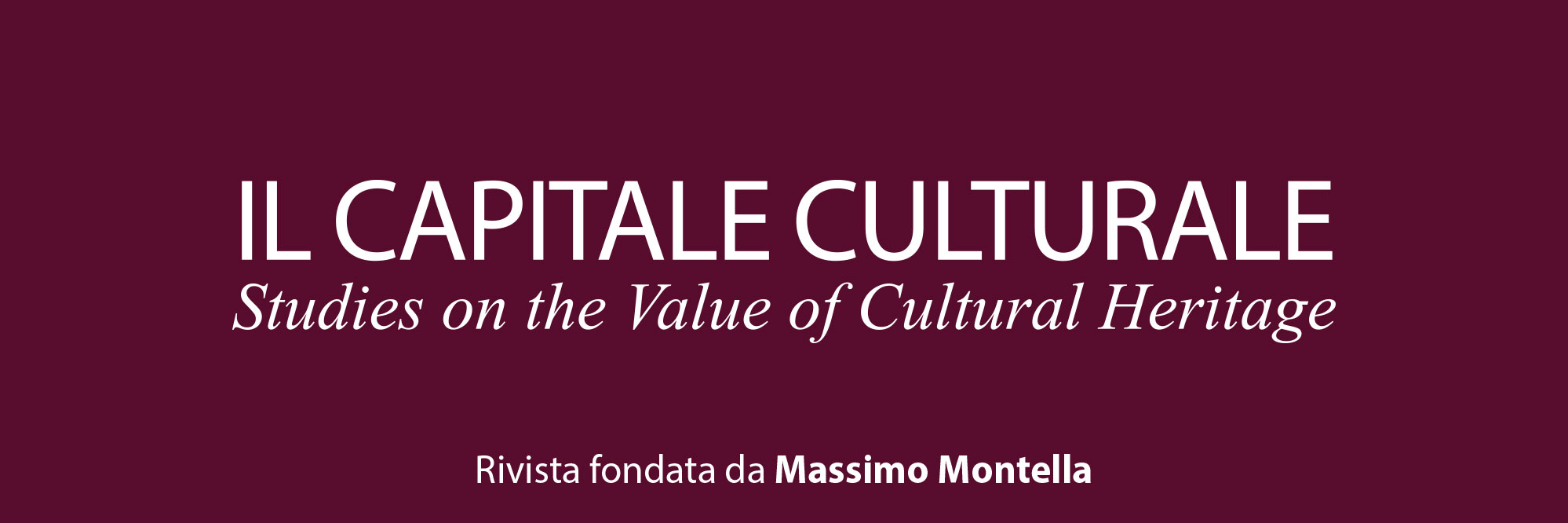Collaborazione pubblico-privato per lo sviluppo sostenibile del territorio / Public-private partnership for the sustainable development of the territory
Downloads
Pubblicato
Fascicolo
Sezione
Licenza
Tutti i materiali pubblicati sono coperti da copyright, mantenuto dall'Università di Macerata che ne supporta finanziariamente e tecnicamente la pubblicazione.
La licenza adottata è la Creative Commons - Attribuzione/Condividi allo stesso modo. Ovvero, gli autori che pubblicano su questa rivista accettano le seguenti condizioni:
- Gli autori mantengono i diritti sulla loro opera e cedono alla rivista il diritto di prima pubblicazione dell'opera, contemporaneamente licenziata sotto una Licenza Creative Commons - Attribuzione che permette ad altri di condividere l'opera indicando la paternità intellettuale e la prima pubblicazione su questa rivista.
- Gli autori possono aderire ad altri accordi di licenza non esclusiva per la distribuzione della versione dell'opera pubblicata (es. depositarla in un archivio istituzionale o pubblicarla in una monografia), a patto di indicare che la prima pubblicazione è avvenuta su questa rivista.
- Gli autori possono diffondere la loro opera online (es. in repository istituzionali o nel loro sito web) prima e durante il processo di submission, poiché può portare a scambi produttivi e aumentare le citazioni dell'opera pubblicata.
DOI:
https://doi.org/10.13138/2039-2362/2534Abstract
Negli studi di economia il tema dello sviluppo di un territorio è analizzato considerando le risorse disponibili, i fattori produttivi e la governance. Tra le risorse rientrano beni tangibili e intangibili, di natura privata e pubblica, inclusi i cosiddetti beni comuni come i beni naturali e culturali. In relazione alla governance la letteratura di management suggerisce due modelli, quello corporate e quello community. Il primo è in linea con il modello economico as usual che considera marginalmente l’esistenza di limiti all’uso delle risorse e assegna al progresso tecnologico l’obiettivo di massimizzare la crescita e il valore dell’impresa. Il modello community assume che le risorse di un territorio siano utilizzate in modo da preservare nel tempo il loro valore. La governance nel modello community è multistakeholder e si fonda sui tre pilastri della sostenibilità: economico, sociale e ambientale. Lo sviluppo basato sulla valorizzazione sostenibile delle risorse naturali, ambientali e culturali, gestito da una governance pubblico-privata, riconosce il territorio come fattore determinante dello sviluppo e non solo contenitore di processi produttivi o erogatore di incentivi.
In the economic literature, the subject of the territorial development analyses three key factors: resources, production factors and governance. Resources can be tangible and intangible, private or public, including the so-called common goods such as natural and cultural factors. From a managerial perspective, the models of governance of the development can be described by two principal configurations: the corporate model and the community model. The first one is consistent with the model “as usual” which considers the limits to the development marginally. Should limits obstacle the economics activities, the technological progress can support the companies to overcome them. The community model assumes that the resources of a territory are used in such a way as to preserve their value over time. Governance in the community model is multi-stakeholder and founded on the three pillars of sustainability: economic, social and environmental. Development based on the sustainable enhancement of natural, environmental and cultural resources, managed by public-private governance, recognises the territory as a determining factor in the development and not just a container for production processes or a provider of incentives.
Riferimenti bibliografici
Becattini G., a cura di (1987), Mercato e forze locali: il distretto industriale, Bologna: Il Mulino.
Brenner N. (2019), From overtourism to sustainability: A research agenda for qualitative tourism development in the Adriatic, MPRA Paper n. 92213, https://mpra.ub.uni-muenchen.de/92213/, 12.08.2020.
Bieger T. (2002), Destinations Management, 5th Edition, Oldenburg-München-Wien.
Boons F., Lüdeke-Freund F. (2013), Business models for sustainable innovation: State-of-the-art and steps towards a research agenda, «Journal of Cleaner Production», n. 45, pp. 9-19, https://doi.org/10.1016/j.jclepro.2012.07.007.
Commissione Europea (2000), Comunicazione della Commissione sul principio di precauzione, /* COM/2000/0001 def. */, https://eur-lex.europa.eu/legal-content/IT/TXT/?uri=celex%3A52000DC0001, 12.08.2020.
Meadows D.H., Meadows D.L., Randers J., Behrens W.W. (1972), The limits to growth. A Report for The Club of Rome’ Project on the Predicament of Mankind, New York: Universe Books.
Elkington J. (1994), Towards the Sustainable Corporation: Win-Win-Win Business Strategies for Sustainable Development, «California Management Review», 36, n. 2, pp. 90-100, https://doi.org/10.2307/41165746.
Franch M. (2020), Se la destinazione è sostenibile, l’overtourism si evita, in Turismo, fragilità, emergenze, a cura di M. Franch, R. Peretta, Milano: McGraw-Hill, in stampa.
Freeman R.E. (1984), Strategic Management: A Stakeholder Approach, Boston: Pitman.
Freeman R.E. (2009), Stakeholder Theory: Friedman vs. Freeman Debate, October, https://www.youtube.com/watch?v=_sNKIEzYM7M, 12.08.2020.
Marshall A. (1890), Principles of economics, 8thEdition, London: Macmillan and Co.
Ostrom E. (1990), Governing the Commons: The Evolution of Institutions for Collective Action, Cambridge UK: Cambridge University Press.




